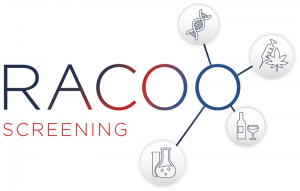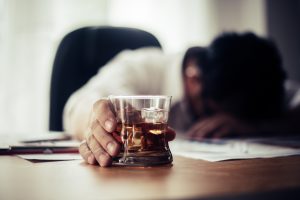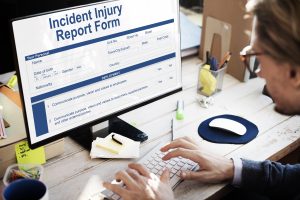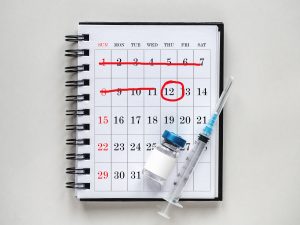Railway drug screening for operators
Keep your railway operations safe with tailored drug and alcohol testing.
At least 51 train crashes have been caused by drivers abusing substances [1, 2].
Substance abuse within your railway company can lead to hazards, decreased efficiency and potential legal implications causing challenges for your operations, including:
Safety risks: Substance abuse can impair a driver’s judgement, coordination, and reaction time, which can increase the risk of accidents and derailments. According to the Department of Transportation, 48 train wrecks from 1975 to 1985 resulted from drug or alcohol impairment, in which 37 people died and 80 people were injured.
Legal and financial consequences: Railway companies can face legal and financial consequences if they are found to have failed to prevent or detect substance abuse among their employees.
Damage to reputation: Train crashes caused by substance abuse can damage the reputation of railway companies and erode public trust in their safety measures.
The Rail Safety and Standards Board (RSSB) recommends drugs and alcohol testing for safety-critical staff [3]. Whether you work within HR or wider railway management, using Racoo’s expertise in railway drug screening helps you address issues before they escalate.
Implement railway drug and alcohol testing to ensure a safe and compliant environment for your passengers and staff
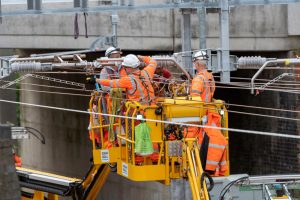
Create a safe railway environment
Rail drug and alcohol tests could deter staff from substance abuse, potentially reducing the risk of incidents. Testing supports the wellbeing of staff and ensures passenger safety.

Maintain operational efficiency
Screening helps ensure staff are fit for their roles, especially in safety critical ones. We can test roles such as drivers, personal track safety, cabin crew and contractors supporting operational excellence and maintaining public trust.

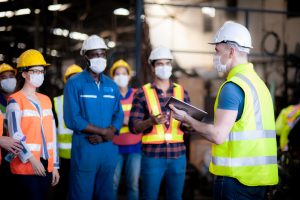
Uphold your operator’s standards
Our fully managed drug and alcohol screen service aligns with the standards expected from operators such as Transport for London (TFL), heritage railways, tram systems, Tyne and Wear Metro, Eurostar and private industrial railways. Ensure safety without the hassle of managing the testing process yourself.
How can railway drug screening support your railway operations?
Drug and alcohol testing involves checking staff for substances and intoxication.
The testing can be based on specific incidents, suspicions, or as part of a broader preventive program.
Racoo Screening’s tests can be conducted using urine samples, breath samples, and other methods. Our testing panel can detect a range of substances, including ketamine and tramadol.
- Fully managed so that you can focus elsewhere
- Tailored to your operator’s needs
- Legal and ethical testing to ensure a safe railway environment
Why Racoo?
FAQs
About drug testing in the rail industry
The most common type of drug test for railway staff in the UK is the urine sample test. It can detect a variety of drugs and is often used due to its accuracy and affordability. Racoo offers laboratory tests as both urine, saliva and breath samples.
Yes, UK railway companies can conduct drug and alcohol tests on their staff. Drug and alcohol testing is mandatory for employees in safety-critical roles or who are PTS (Personal Track Safety) cardholders within the UK rail industry. This is required by the Transport and Works Act (1992), which states that “those who are found to be impaired by drugs or alcohol are guilty of a criminal offense” [4].
The following drugs are tested for in the UK rail industry:
- Amphetamines
- Benzodiazepines
- Cannabis
- Cocaine
- Methadone
- Opiates
- MDMA (Ecstasy)
- Ketamine
- Tramadol
As with all UK drug testing, the laboratories should have ISO/IEC 17025 accreditation [5]. This certifies that a lab uses valid sampling and testing methods to produce reliable and accurate drug test results. All of Racoo’s partner laboratories meet these standards and adhere to full chain of custody requirements.
Eurostar operates a drug screening policy in accordance with the RSSB recommendations [8].
TFL operates a zero-tolerance approach to alcohol and/or drug use to minimise any safety risks to customers and its employees. The operator conducts random, announced, for-cause and pre-employment testing, with the London Underground testing 5% of its safety-critical staff each year [6, 7]. Racoo can support TFL with drug and alcohol screening.
Absolutely. Rail engineers, responsible for the safety and efficiency of the rail network, are considered safety-critical roles and therefore subject to drug and alcohol tests. This is in accordance with RSSB recommendations, of which most UK rail operators are signed up to [3].
According to the Rail Industry Standard RIS-8070-TOM [9]
Positive result for drugs and alcohol testing 3.4.1A ‘positive result’ shall be confirmed when a test on an individual performing safety-critical tasks shows:
- a) The presence of drugs with no legitimate medical need for their use or the quantity of their use;
- b) More than 29 milligrams of alcohol in 100 millilitres of blood;
- c) More than 13 micrograms of alcohol in 100 millilitres of breath; or
- d) More than 39 milligrams of alcohol in 100 millilitres of urine.
Individual transport operators may choose to adopt more restrictive levels
Note, Scotland [10] has the ability to set its own limits for railway safety critical staff. However, they are currently aligned to the Transport and Works Act 1992 [4]:
- Blood alcohol: 80 milligrams in 100 millilitres
- Breath: 35 micrograms in 100 millilitres
- Urine: 107 milligrams in 100 millilitres
Safety critical in this sense includes:
- Drivers
- Guards
- Conductors
- Signalmen
- Maintenance
- Supervisors
- Look-outs
- Anyone who can control of affect the movement of a vehicle
references
[1] www.bbc.co.uk Enfield train crash: Driver tested positive for cocaine
[2] www.railadvent.co.uk Driver under influence of drugs jailed for derailing London Overground train
[3] www.rssb.co.uk Rail Safety & Standards Board: Testing Railway Safety Critical Workers for Drugs and Alcohol
[4] www.legislation.gov.uk Transport and Works Act 1992
[5] www.ukas.com Accreditation to ISO/IEC 17025
[6] www.tfl.gov.uk Pre-employment Drug and Alcohol Tests
[7] www.london.gov.uk TfL drug testing
[8] www.federalregister.gov Control of Alcohol and Drug Use
[9] www.rssb.co.uk Standards catalogue: Drugs and alcohol testing for safety-critical workers RIS-8070-TOM
[10] www.scotland.police.uk Drink, Drugs (Railways, Marine and Aviation) Standard Operating Procedure
